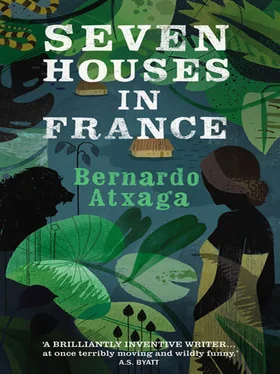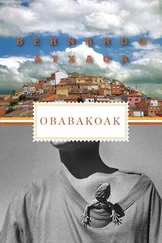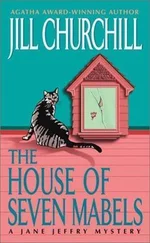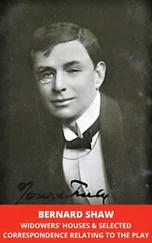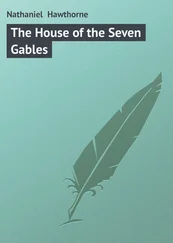Lalande Biran threw his head back and rubbed his cheeks. His beard, which had remained unshaven during the whole hunting trip, was making him itch.
‘That’s one good thing about Yangambi, Cocó,’ he said at last. ‘When we first came here, we were happy-go-lucky grasshoppers who gave no thought to winter. Now we have become ants.’
Van Thiegel opened his locker and took out a letter. He shook his head. ‘It’s true that I’ve been very good while I’ve been in Yangambi and sent a lot of money home to my mother,’ he said, ‘but I’m no ant. As soon as I get back to Europe, I’ll revert to being a grasshopper. My mother knows this and squirrels away everything I send her. She says I’ll have to torture her to get her to confess which bank she’s put it in.’
‘Are you thinking of going back then, Cocó?’ asked Lalande Biran.
‘I spent eleven years with the Foreign Legion, and I’ve been with the Force Publique for nine. That’s quite enough, I reckon.’
Van Thiegel gave the letter to Lalande Biran.
‘Where will you go, do you think? Antwerp?’
‘I’m not sure.’
‘It’s my last year here too,’ said Lalande Biran. ‘I had my doubts, but they all melted away with the news you’ve just given me. I’m going back to Europe.’
‘You’ll find the newspaper cuttings in the envelope. They explain about the rise in value of ivory and mahogany.’
Lalande Biran read the sender’s name: Veuve Marie-Jeanne Van Thiegel — Widow Marie-Jeanne Van Thiegel — and the address in Antwerp. Her writing leaned to the right, like Christine’s.
‘I imagine my wife and your mother are rather alike,’ he said. ‘They should go into business together.’
Lalande Biran was holding the little pile of cuttings in his hand. Van Thiegel chose one neatly folded piece of paper.
‘This is the best article, from Le Soir . It gives a really clear explanation for the rise in value.’
The cutting, once unfolded, resembled the bellows of an accordion. ‘HOW IVORY AND MAHOGANY WERE TRANSFORMED INTO GOLD,’ said the headline.
THE SECOND OF the Barrack huts that made up the Club Royal, and where the officers had their bar and games room, was a strange sight in the middle of the African jungle. Its gable roof was covered by an insulating layer of mud and palm leaves, while inside, everything was made of hardwood — ebony, teak and mahogany — like the private clubs in Brussels and Paris. It had nine tables in all, three of which, round and covered in green baize, were intended for card games. A bar and shelving for bottles were located in one corner of the entrance hall. At the rear, beyond the tables, was the smoking-room furnished with various armchairs arranged in a circle and replete with cushions. This was also where the oddest of the club’s features was to be found — a door made entirely of glass leading into another hut that served as a porch.
On the wall that ran from the bar to the smoking-room was a large photograph of Léopold II — the only picture in the entire club.
Most of the officers were seated at the three round tables, some as card-players and others as spectators. Van Thiegel immediately noticed Chrysostome’s presence. He was, as usual, one of the onlookers, the worst sort, the sort who never even opens his mouth or does anything to encourage the players and liven things up a bit. The poofter obviously felt it was enough to show off his unbuttoned collar and his blue ribbon and medals. Such laxity clearly did not comply with regulations. Many askaris had been punished with a week or more in the guardroom for having the second button of their shirt undone. Yet Chrysostome could go around with three or even four buttons undone and no one said a thing, but then he, of course, was an officer and enjoyed the protection of Lalande Biran.
King Léopold cast a cold and disapproving eye over the scene. Van Thiegel was sure that the monarch, that highest of authorities, would agree with him. The King doubtless liked poofters as much as he did, that is, not at all.
‘Would you care for a Martell, sir? Or, if you prefer, I could mix you a martini. The Roi du Congo brought five whole cases,’ said the manager of the bar. He belonged to the Twa tribe and was now about sixty years old, having been in his day an excellent jungle guide. It was said that he had been the man to lead Stanley to Livingstone, which is where he got his nickname, although he was known as Livo for short.
‘A double martini,’ said Van Thiegel, before going over to the card tables. He sat down next to Chrysostome, then turned his back on him and asked to be dealt some cards.
Lalande Biran was sitting in one of the armchairs in the smoking-room, beside the glass door, reading the article from Le Soir and holding an unlit cigarette in his hand. The sky was heavy with dense clouds, however, and not enough light came in through the small windows or the glass door for him to be able to read easily. He went out onto the porch and sat on the edge, as near to the river as possible. His sight was getting worse and worse. Soon he would need glasses.
‘Your lemonade, sir,’ announced Livo, who arrived bearing a tray and set the drink down on the table. It wasn’t real lemonade, but the juice from various jungle fruits. It was violet in colour and had a bitter taste.
‘And what colour is your oimbé today? This colour?’ Lalande Biran asked in friendly fashion, pointing to his drink.
Livo had told him once, on that very porch, that the Twa people could, in certain circumstances, see an aura around the body. They called this the oimbé , and its colour changed according to the person’s state of mind. It was violet when they were sad, blue when happy, black or dark green when anxious, and red when they were afraid.
‘No, not violet,’ Livo said, but gave no further explanation.
He regretted ever having mentioned the oimbé to the Captain and always avoided responding to his questions, but Lalande Biran did not give up and often, instead of greeting him normally, would ask that same question: ‘What colour is your oimbé today?’ He had even spoken of writing a poem about it, entitled: ‘The men of Twa, inhabitants of the rainbow.’
Lalande Biran put his cigarette to his lips and asked Livo for a light.
‘Is Donatien in the storeroom?’ he asked.
‘I’ll have a look, sir.’
Livo duly went to the storeroom and opened the door, telling the Captain on his return: ‘No, he’s not there, sir.’
‘I need a shave,’ said Lalande Biran.
As well as being in charge of the club, Livo was also resident medicine man and occasional barber. However, he never shaved any of the officers for fear of cutting them.
‘I wouldn’t do a good enough job,’ he said by way of an excuse.
‘Then I’ll have to wait for Donatien.’
Livo went back into the club.
Lalande Biran took a puff of his cigarette. His supply of tobacco for the hunting party had not lasted as long as expected, and he hadn’t had a cigarette for a week. The smoke made him feel slightly dizzy.
The article in Le Soir was very thorough, and Lalande Biran read it as if it were a poem, savouring every line. He learned that the price of ivory had risen 370 per cent in eight months; that of ebony by 280 per cent, teak by 320 per cent and mahogany by 330 per cent. Knowing what these figures added up to — namely, 1, 500,000 francs — filled him with pleasure. Especially when they were accompanied by confirmation that prices would continue to rise until Christmas, and that the demand for hardwood had tripled or even quadrupled.
He finished his drink and sat gazing at the water, drawing more deeply now on his cigarette. The surface of the constantly flowing river occasionally dimpled and rippled. In the little dock near the store, the canoes gently bobbed and knocked. The jungle, in contrast, was as motionless as a painting. Some lines came into his head:
Читать дальше
